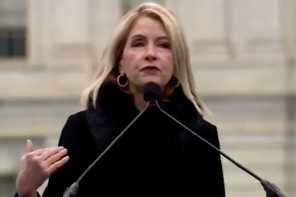Leading scientists have been questioning the existence of God a lot lately. As a lapsed Catholic turned agnostic and scientific materialist, I applaud this trend. But I am disturbed that some atheistic scientists are also questioning the existence of free will.
“It is hard to imagine how free will can operate if our behavior is determined by physical law,” the physicist Stephen Hawking writes in The Grand Design, his latest bestseller, co-written with Leonard Mlodinow, “so it seems that we are no more than biological machines and that free will is an illusion.” Similarly, the neuroscientist Sam Harris, author of The End of Faith, contends in his new book The Moral Landscape that “no account of causality leaves room for free will.” He adds, “Our belief in free will arises from our moment-to-moment ignorance of specific prior causes.”
Researchers have certainly raised intriguing questions about the link between our choices and actions. Harris cites experiments by the physiologist Benjamin Libet, in which subjects pushed a button whenever they chose while noting the time of their decision as displayed on a clock. The subjects took 0.2 seconds on average to push the button after they decided to do so. But an electroencephalograph monitoring their brain waves revealed that the subjects’ brains generated a spike of brain activity 0.3 seconds before they decided to push the button. The conscious choice seemed to follow rather than initiate the action. More recent experiments have detected neural precursors of decisions as many as nine seconds in advance.
There is also evidence that the neural circuits underlying our conscious sensations of intention are separate from the circuits that actually make our muscles move. This disconnect may explain why we so often fail to carry out our most adamant decisions. This morning, I vowed to write all afternoon rather than watch football, but somehow I ended up watching the end of the Jets game. These experiences recall Edgar Allan Poe’s short story “The Imp of the Perverse,” about a man who feels possessed by an evil other.
Brain disorders can trigger much more dramatic experiences of this kind. Schizophrenics perceive their very thoughts as coming from malevolent external sources. People who have sustained damage to the corpus callosum, a neural cable that transmits signals between the brain’s hemispheres, may be afflicted with alien-hand syndrome, in which one hand reaches out and grabs things (including other people) without any conscious intent on the part of its mortified owner.
Neurosurgeons preparing the brain of an epileptic before surgery can make the patient’s arm pop up like an eager student’s by electrically stimulating the motor cortex. The patient often insists that she meant to move the arm and even invents a reason why: She was waving to that nurse walking by the door! Neurologists call these erroneous, post-hoc explanations confabulations. Some scientists argue that whenever we explain our acts as the outcome of our conscious choice, we are engaging in a kind of confabulation, because our actions actually stem from countless physiological causes of which we are completely unaware.
In his book The Illusion of Conscious Will, the psychologist Daniel Wegner notes that we think of will as a kind of force that initiates action. But according to Wegner, will is “merely a feeling.” One moment I think, “I’m going to watch the Jets instead of writing this essay.” A moment later, I press the button on the TV remote. My thought seems to have caused my action, but correlation does not necessarily equal causation.
Both free will and the concept of a unified self (which is a necessary precondition for free will) are illusions, according to Wegner. He quotes the science-fiction writer Arthur C. Clarke’s remark that “any sufficiently advanced technology is indistinguishable from magic.” Because we cannot possibly understand how the fantastically complex machines in our skulls really work, Wegner contends, we explain our behavior—and that of others—in terms of such primitive, magical concepts as “the self” and “free will.”
I choose to reject this conclusion. Yes, the mind can be hideously complicated, and divided, often working at cross-purposes. Ancient Greeks like Homer and Sophocles told us that. Yes, researchers have demonstrated that all our thoughts and actions are underpinned by physiological processes, but what else could they have found? Evidence of an immaterial soul?
Science has discovered nothing that contradicts free will. To deny free will’s existence is to deny that our conscious, psychological deliberations—Should I ask my girlfriend to marry me? Should I major in engineering or art?—influence our actions. Such a conclusion flies in the face of common sense. Of course, sometimes we deliberate insincerely, toward a foregone conclusion, or we fail to act upon our resolution. But not always. Sometimes we consciously choose to do something and we do it. Correlation does not necessarily equal causation, but it often does.
Moreover, free will must exist, if some creatures have more of it than others. My teenage daughter and son have more free will—more choices to consider and select from—than they did when they were infants. They also have more than our dog Merlin does. I have (on my good days) more free will than adults my age suffering from schizophrenia or obsessive-compulsive disorder. Try telling prisoners or paraplegics that there is no free will, and that choices are illusory. “Let’s change places,” they might respond, “since you have nothing to lose.”
We also need the concept of free will, much more than we need the concept of God. Our faith in free will has social value. It provides us with the metaphysical justification for ethics and morality. It forces us to take responsibility for ourselves rather than consign our fate to our genes or God. Free will works better than any other single criterion for gauging the vitality of a life, or a society. Choices, freely made, are what make life meaningful.
When people doubt free will, they are more likely to behave badly. After reading a passage from a book that challenged the validity of free will, students were more likely to cheat on a mathematics exam. Others were less likely to let a classmate use their cell phone. “Some philosophical analyses may conclude that a fatalistic determinism is compatible with highly ethical behavior,” the psychologist Jesse Bering comments in an article on these studies, “but the present results suggest that many laypersons do not yet appreciate that possibility.”
Theologians have proposed that science still allows faith in a “God of the gaps,” who dwells within those shadowy realms into which science has not fully penetrated, such as the imaginary time before the Big Bang banged. In the same way, maybe we can have a free will of the gaps. No science is more riddled with gaps, after all, than the science of human consciousness.
I don’t believe in God—at least, not a God described in any text I know of—but I do believe in free will.




